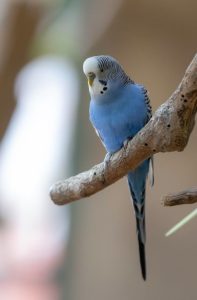0818 Work Insights
Your go-to source for the latest work trends, tips, and advice.
Feathers and Friendship: The Secrets to Happy Birds
Discover the secrets to keeping your feathered friends happy and thriving! Uncover tips for friendship and fun in every chirp and flutter.
The Importance of Social Interactions in Bird Behavior
Social interactions play a crucial role in shaping bird behavior, influencing everything from feeding patterns to mating rituals. Birds are inherently social creatures, and their behaviors often reflect complex relationships within their flocks. For instance, certain species, such as finches, rely on social cues and interactions to determine feeding locations and sources of danger. These interactions not only enhance survival rates but also contribute significantly to the development of vocalizations and learned behaviors, allowing young birds to adapt and thrive in their environments.
Furthermore, social interactions among birds can impact their cognitive development and emotional well-being. Many studies have shown that species like parrots and crows engage in play and social bonding activities that stimulate their brains, improving problem-solving skills and creativity. The importance of these social bonds cannot be overstated, as they not only provide essential support during stressful times but also foster a sense of community. Thus, understanding the intricacies of social interactions in bird behavior can shed light on their ecological roles and the need for conservation efforts in their natural habitats.

How to Create a Happy Home for Your Feathered Friends
Creating a happy home for your feathered friends starts with ensuring their living environment is comfortable and safe. Begin by selecting an appropriate cage that is spacious enough for your birds to move around freely. According to the American Veterinary Medical Association, a good cage should include various perches at different heights, appropriate toys for mental stimulation, and easy access to food and water. Additionally, consider placing the cage in a quiet, well-lit area of your home, away from drafts and direct sunlight. This setup mimics their natural habitat, making them feel more secure and less stressed.
Aside from their physical space, the emotional wellbeing of your birds significantly contributes to a happy home. Regular interaction is key—spend time talking to them, allowing them to socialize, and providing them with a diet rich in nutrients. Incorporate a variety of fresh fruits and vegetables in their meals to ensure they stay healthy and happy.
As outlined by the PetMD, engaging them with toys, puzzles, and opportunities to fly outside their cage (in a safe environment) can also enhance their quality of life. Remember, a happy bird is a healthy bird, and your efforts will foster a joyful atmosphere in your home!
Do Birds Really Form Friendships? Exploring Avian Social Bonds
The concept of friendship isn't solely a human trait; many researchers are delving into the question: Do birds really form friendships? Observational studies have revealed that certain avian species exhibit strong social bonds with one another, often aiding each other in foraging, raising young, and providing protection against predators. While behaviors often resemble those of human friendships, it's essential to understand that these relationships are not entirely comparable to human social structures. Birds like parrots and crows are known for their complex social interactions, demonstrating behaviors such as mutual preening and synchronized activities, which can be indicative of friendly connections within their flocks. For further insights, you can explore the study by the National Audubon Society.
Additionally, the formation of these avian social bonds may play a crucial role in a bird's survival and overall well-being. For instance, species like African gray parrots are known to form lifelong bonds with their mates and can even display signs of distress when separated. This emotional connection highlights the depth of social relationships in the avian world. Moreover, scientific research, such as those reported by Scientific American, demonstrates that these connections can influence reproductive success and social learning. Understanding the dynamics of these friendships sheds light on the complexity of bird behavior and their capacity for social life.